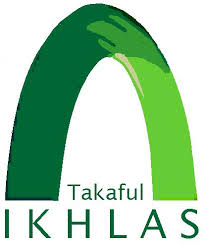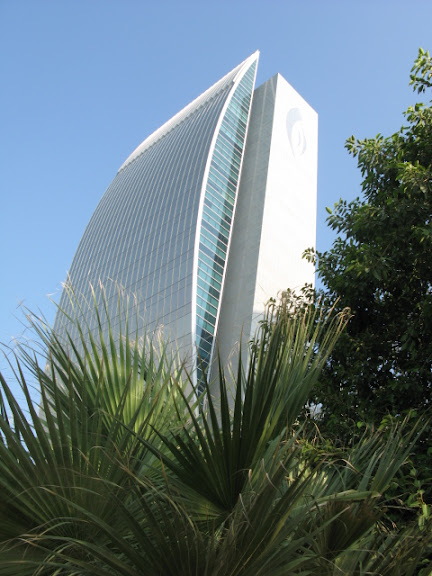
With the corporate bond market in a moribund state, another avenue for bond issuance is via the securitisation of takaful premiums.
According to Syarikat Takaful Malaysia Bhd (STMB) chief investment officer Azian Kassim, the idea is possible but it should be subjected to a thorough study “as the underlying principles of takaful business is totally different (from) that of conventional.”
Maybank Investment Bank Bhd fixed income research head Tan Chee Wee noted that car financing had already been securitised.
“It is the same as the securitisation of car financing – those borrowers are making the monthly payments that are in turn channelled into payment of interest rates on the bonds issued against these auto loans,’’ he said.
In this case, it would be the takaful policyholders who would be providing the cashflow.
“I would say it works, but the important thing is from an investor’s point of view to not just look at the structure but also understand the background of those who bought takaful insurance,” Tan said. “At the end of the day, it boils down to the individual credit of all the people who have taken (takaful) insurance and who are paying the premium on a yearly basis.”
At present, an example of an auto finance-backed corporate bond is the secured fixed rate bond issued by Cepat Assets Bhd.
Securitisation, the process of pooling and repackaging cashflow-producing financial assets into bonds, will provide an opportunity for takaful operators to unlock the value of the underwriting business by transferring certain portions of risks to capital markets.
Azian said the move would require “concerted efforts from various parties for this to happen and among other things, the regulator and syariah board need to be involved.”
“As no such product has been made available in the Malaysian market, the regulatory requirements are yet to be determined. However, given the recent fallout of the collateralised debt obligation (CDO) market in the United States, it is assumed that the regulatory bodies would be very stringent in approving such products,” she added.
For the syariah board, concerns involve the structure for the transaction and also the usage of takaful contributions as the underlying asset.
“At this juncture, there is no plan to securitise takaful contributions. However, we would keep our options open to this new innovative capital market instrument. Should there be any opportunity to embark on such a transaction, the viability of such exercise would be assessed accordingly before any decision is made,” she said.
For the year ended Dec 31, 2008, the total net contribution income for all the takaful operators was RM3.025bil, while total takaful fund assets stood at RM10.569bil.
As to how much this would translate into the potential value of bonds, Azian said: “We do not have any estimates as this is still subject to a detailed study by all respective parties especially capital market players.”
Due to the global financial crisis, there have been calls to move away from complex securitisation schemes since the US subprime collapse is partly blamed on asset-backed securitisation linked to mortgages.
“In our view, the subprime crisis was not a result of complex securitisation schemes but due to a combination of a lack of regulatory supervision and proper assessment by the investors,” she added.
Azian reckoned that the securitisation of takaful contributions would spread the risk more broadly rather than just “warehousing” it in a particular takaful company which has lower capacity and diversification potential than the capital market as a whole.
“The removing of risks from the takaful industry would reduce transaction, agency and regulatory costs, thus increasing the efficiency of capital. Investors would also benefit from the availability of new classes of securities.
“Furthermore, securities based on risks associated with the takaful industry such as catastrophic, mortality and longevity risks are likely to have a relatively low co-variance with market systematic risk, making them even more valuable for diversification purposes,” she said.
However, Azian cautioned that such securitisation must be accompanied with stringent surveillance from the regulatory bodies and proper product education.
--
The Star Online
 Takaful Ikhlas Sdn Bhd has launched a comprehensive group Takaful scheme for the staff of Immigration Department through the latter's Kesatuan Perkhidmatan Imigresen Semenanjung Malaysia (KPISM).Executive Vice President and Chief Operating Officer of Takaful Ikhlas, Wan Mohd Fadzlullah Wan Abdullah said the group scheme has been prepared specially to provide Syariah based comprehensive financial protection."The scheme will provide attractive and reasonable rates into the investment accounts of the participants. Besides the element of saving for retirement days, it is also created to minimise the risk factor," he said in a statement here Friday.Wan Mohd Fadzlullah said Takaful Ikhlas aimed to get 2,000 new members under the scheme with an estimated contribution amount of RM1 million in the first year.The scheme will be also opened to the family members of those taking up the scheme.Among the features of the scheme will include coverage for accidents, death, hospitalisation benefits, as well as coverage for 40 critical illnesses.Further details on the scheme can be obtained at KPISM or from any Takaful Ikhlas office.
Takaful Ikhlas Sdn Bhd has launched a comprehensive group Takaful scheme for the staff of Immigration Department through the latter's Kesatuan Perkhidmatan Imigresen Semenanjung Malaysia (KPISM).Executive Vice President and Chief Operating Officer of Takaful Ikhlas, Wan Mohd Fadzlullah Wan Abdullah said the group scheme has been prepared specially to provide Syariah based comprehensive financial protection."The scheme will provide attractive and reasonable rates into the investment accounts of the participants. Besides the element of saving for retirement days, it is also created to minimise the risk factor," he said in a statement here Friday.Wan Mohd Fadzlullah said Takaful Ikhlas aimed to get 2,000 new members under the scheme with an estimated contribution amount of RM1 million in the first year.The scheme will be also opened to the family members of those taking up the scheme.Among the features of the scheme will include coverage for accidents, death, hospitalisation benefits, as well as coverage for 40 critical illnesses.Further details on the scheme can be obtained at KPISM or from any Takaful Ikhlas office.










































